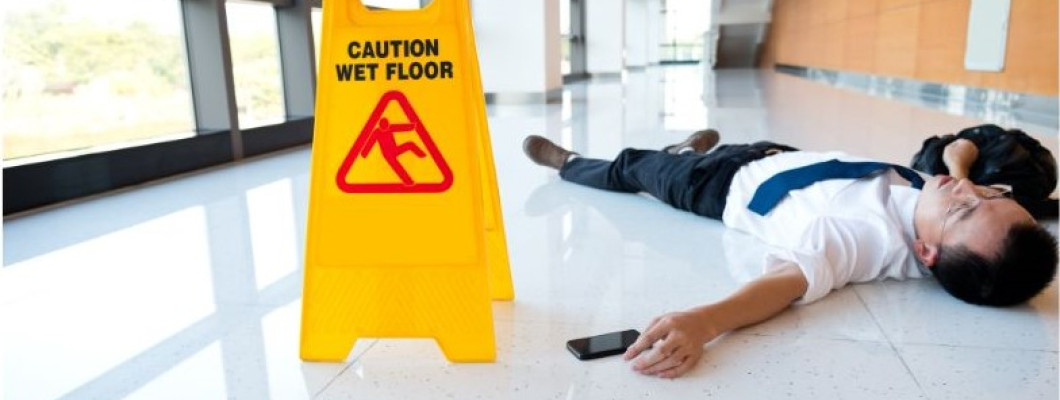
While 2020 threw major curveballs at businesses, 2023 isn't slowing down either. The last thing you need as a business owner is the added stress and financial burden of slip-and-fall claims, especially with winter creeping in. Snow, ice, and rain create ideal conditions for these accidents, and neglecting proper safety measures can have severe consequences.
In the US alone,
- 700,000 people are hospitalized annually due to falls.
- 1 in 5 falls results in a serious injury.
- Falls are the leading cause of traumatic brain injuries (TBIs).
- 2.5 million seniors seek emergency care for fall-related injuries each year.

The Cost of Negligence
If a customer or visitor slips and falls on your property due to negligence, they can file a premises liability claim. These claims cost American businesses millions annually. While general liability insurance usually covers slip-and-fall claims for non-employees, they can increase your premiums. For self-insured businesses, the expenses hit directly, often reaching tens of thousands of dollars. On average, slip and fall incidents cost around $30,000. However, when TBIs are involved (which happens more often than you think), the cost skyrockets. Between 2007 and 2012, the average TBI cost in a general liability claim was a staggering $269,643, according to CNA.
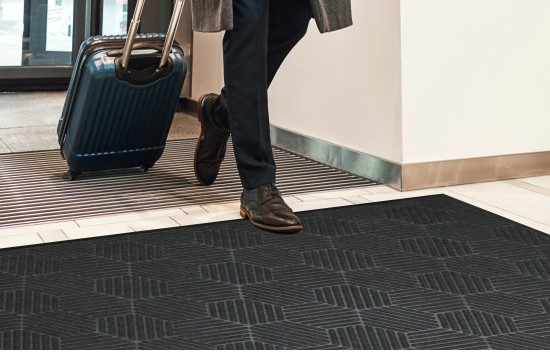
Investing in Prevention
To avoid these devastating liabilities, identify and address the root causes of slip and fall accidents:
- Slippery surfaces: Polished floors, wet areas, and uneven surfaces
- Spills: Promptly clean up spills and leaks
- Adverse weather: Use mats and de-icing solutions
- Loose rugs or mats: Secure them properly or remove them
Commercial Floor Mats as Your Ally
One highly effective preventive measure is installing entrance floor mats. These aren't just functional; they also show your commitment to guest safety and create a positive first impression. Universal Floor Mats offers top-of-the-line commercial mats and floor coverings specifically designed to enhance both aesthetics and safety. We have solutions for:
- Entranceways: Capture dirt, moisture, and debris before they enter your building. Opt for mats with deep grooves or nubby textures to trap dirt, moisture, and debris before they're tracked inside. Rubber mats for outdoor use and absorbent fabrics like microfiber or nylon for indoor entrances are ideal.
- High-traffic areas: Prevent slips and falls with durable, anti-slip mats. Use durable, anti-slip mats with good traction, like rubber or vinyl with raised patterns. Avoid thin or flimsy mats that bunch up or move easily.
- Wet areas: Keep kitchens, bathrooms, and work areas safe with water-resistant mats. Look for water-resistant mats with drainage channels for kitchens, bathrooms, and work areas. Rubber or foam mats with raised edges can help contain spills.
- Rugged environments: Industrial-grade mats for maximum durability and traction. For industrial settings, choose heavy-duty rubber or synthetic mats with excellent grip and resistance to wear and tear.
Don't wait for a fall to take action. Invest in high-quality floor mats from Universal Floor Mats and protect your customers, employees, and your bottom line this winter and beyond.

Placement and Maintenance
- Secure placement: Use non-slip backing or adhesive strips to prevent mats from sliding or bunching up. This is especially crucial on hard floors.
- Proper size: Ensure the mats cover high-traffic areas adequately and don't create tripping hazards by extending into walkways or doorways.
- Regular cleaning: Clean and maintain mats regularly to remove dirt, debris, and spills. Washing, sweeping, or vacuuming depending on the mat type is essential.
- Replace worn-out mats: Don't wait for mats to show visible wear or tear before replacing them. Worn-out or damaged mats can lose their grip and become tripping hazards.
Additional Tips
- Post clear signage: Warn guests about potential hazards like wet floors or stairs.
- Regularly maintain floors: Sweep, mop, and de-ice surfaces to prevent buildup of dirt, grime, and ice.
- Train employees: Educate staff on fall prevention protocols and proper spill cleanup procedures.
By taking proactive steps, you can create a safer environment for everyone and avoid the costly consequences of slip-and-fall accidents.
Let's make this winter worry-free, together!

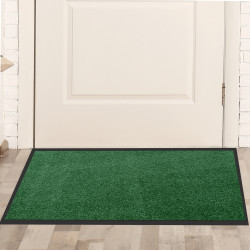
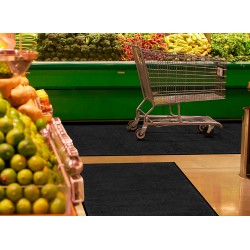
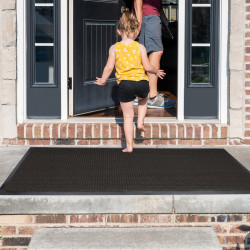
-250x250.jpg)
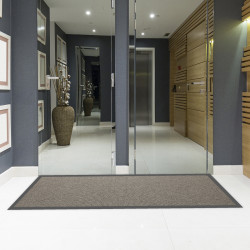
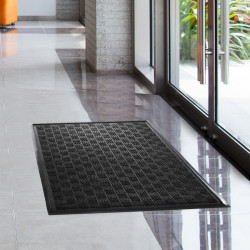
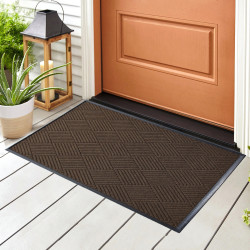
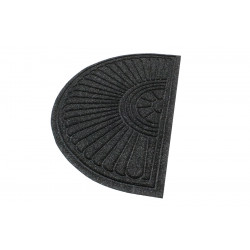
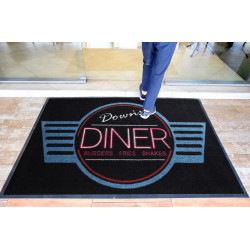
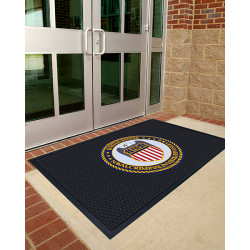
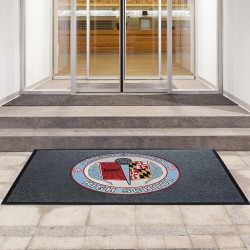
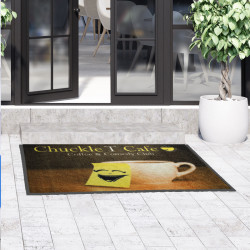
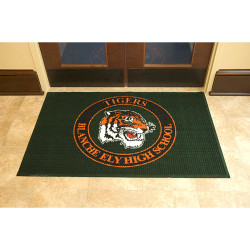
-250x250w.jpg)
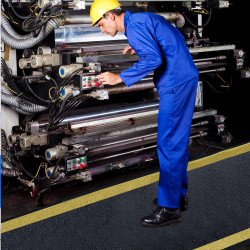
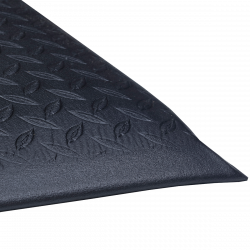
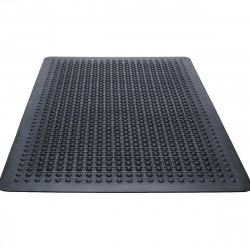
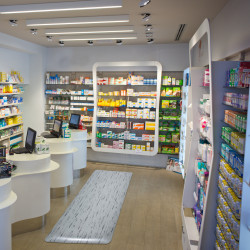
-250x250.png)
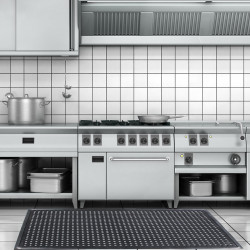
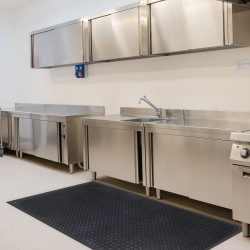

Leave a Comment